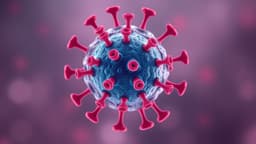Home / Health / Rare H5N5 Bird Flu Strain Infects Washington Resident
Rare H5N5 Bird Flu Strain Infects Washington Resident
15 Nov
Summary
- First known human case of H5N5 bird flu in the U.S.
- Infected person has underlying health conditions and is hospitalized
- Virus not believed to pose greater threat than previous H5N1 infections
On November 15, 2025, health officials in Washington state confirmed the first known human case of the H5N5 bird flu virus in the United States. The infected individual, an older adult with underlying health conditions, is currently hospitalized.
The H5N5 strain is a different type of bird flu than what has been seen in previous infections. However, according to experts, it is not believed to pose a greater threat to human health than the H5N1 virus that led to 70 reported cases in the U.S. just last year. Most of those H5N1 infections were mild, primarily affecting workers on dairy and poultry farms.
State and federal health officials are still investigating the source of the H5N5 exposure, but they believe the person's backyard flock of domestic poultry, which had been exposed to wild birds, is the most likely source. The CDC is awaiting a specimen from Washington to conduct additional testing on the virus.
While the discovery of this rare bird flu strain is concerning, health authorities have emphasized that the risk to the general public has not increased as a result of this isolated case. They are closely monitoring the situation and will provide updates as more information becomes available.



